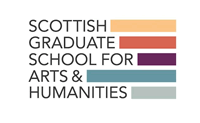Dr N Devarenne, Prof A Waller
No more applications being accepted
Funded PhD Project (European/UK Students Only)
About the Project
Representations of AI in science fiction influence how technologies develop and how the general public interacts with them. A lack of diversity is a problem both in SF and in the UK’s AI industry. Inclusive worlds exist in SF, but largely on the periphery of academic scholarship and popular culture trends. Understood broadly, ‘design’ which is more sensitive, inclusive, and adaptable should be a gold standard for creative practice, scholarship, and software development alike. This project draws upon a broad range of SF narratives to inspire the development of more accessible technologies, broaden participation and inform public debate about AI.
Aims & Objectives
With a focus on diversity in AI, to initiate a new flow of ideas across academic disciplines (Humanities and Computing), and between academia and UK government
To share the benefits of this knowledge exchange with industry and the general public, through public engagement activities and by interfacing with AI industries
To contribute to the common good and enhance UK security through a better understanding of the importance of diversity in the AI workforce and in AI design
Depending on the background and interests of the student, to produce an original and innovative doctoral thesis that would (as examples):
document the cultural factors involved in the problematic representation and under-representation of diversity in SF;
describe how overlooked or new forms of narrative could inspire new directions in software design or the public relationship with AI;
produce a series of case studies relating the representation of AI in SF to software design manifestations in the real world, and propose alternatives through imaginative thinking;
approach software design problems using analytical methodologies drawn from the Arts & Humanities, with the aim of enhancing accessibility and usability
Research Questions:
How can SF narratives inspire design strategies that prioritise usability for a diverse national community?
How can SF narratives influence the design of more sensitive, inclusive and adaptable AI?
How might exposure to a wider range of narratives encourage the development of a more diverse workforce in the AI industry?
How can we better educate and inform the general public about the moral, legal, and ethical concerns surrounding AI, with a special emphasis on diversity, accessibility and inclusion?
How can design goals prioritising diversity help grow the AI industry in the UK and enhance our security and prosperity?
Funding Notes
To be eligible for a NPIF Artificial Intelligence studentship, you must meet AHRC eligibility criteria. http://www.ahrc.ac.uk/documents/guides/training-grant-funding-guide-2015-16/
The successful candidate is likely to come from an Arts & Humanities background, with an interest in science fiction. Other academic backgrounds may also be suitable. Effective communication skills are essential. An interest in creative writing would be considered an advantage, as would experience or interest in software design.
Unfortunately, we are not able to fund international students. EU students are eligible for fees-only awards.
References
The award is offered for full time registration for the PhD. For UK nationals, the funding will include a tax-free stipend of £15,327, and tuition fees.
For more information and details on how to apply, visit http://www.sgsah.ac.uk/prospective/ai/

 Continue with Facebook
Continue with Facebook

